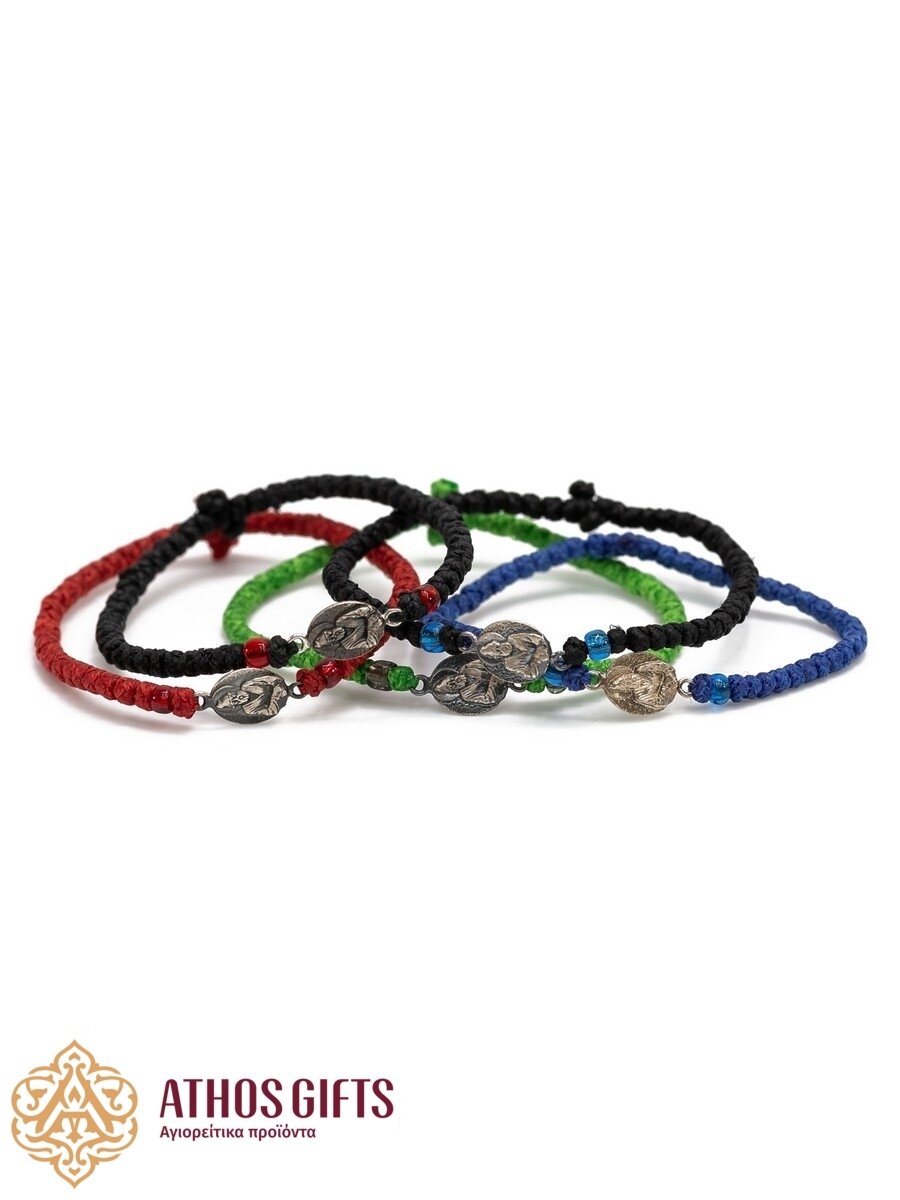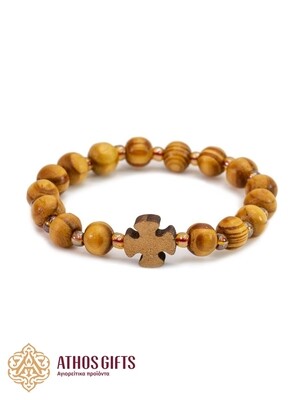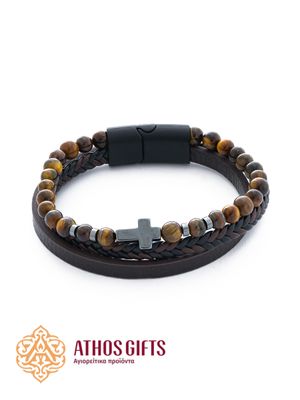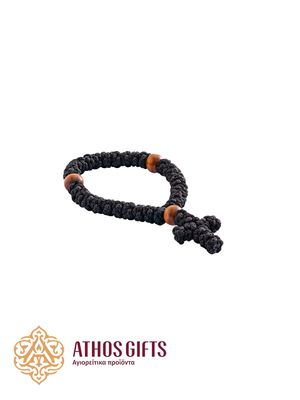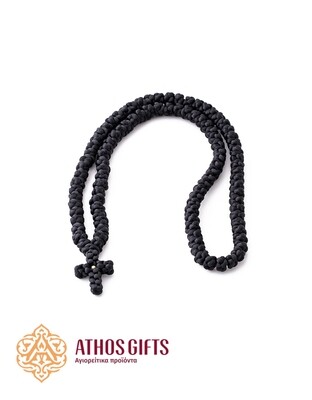Handmade braided bracelet Paisios of Mount Athos
The bracelet is handmade. The length is 15 cm; it consists of small knots, into which two seed bead inserts are woven. The bracelet also contains a sterling silver icon depicting Paisios of Mount Athos, which makes it not just a piece of jewelry, but a Christian symbol of faith. Thanks to a special braiding technique, the bracelet can be easily stretched by increasing the distance between the knots. This means it's is suitable for all wrist sizes.
Komboskini bracelets
Greek komboskini bracelets are woven by the monks of the Mount Athos monasteries with prayer and for prayer. The name of the bracelet reflects its essence and purpose: in Greek, kombos (κόμπος) means "knot", and skini (σχοινί) is a rope or cord.
The weaving of the komboskini bracelets is always accompanied by continuous prayer. Tying each knot, the monk says: "Lord Jesus Christ, have mercy on me." Due to this, Greeks believe that komboskini bracelet protects the person who wears it. But the bracelets also have a more practical use: like prayer ropes, they are used by the prayers to go through the knots and thus count the number of prayers uttered.
Bracelets are braided in a special way: each knot consists of 9 crosses of cord, symbolizing the nine crosses, or nine angelic ranks. Often seed beads, little crosses or icons are woven into the bracelet. Komboskini bracelets are usually worn on the wrist of the left hand, as it's closer to the heart. Believers often give such bracelets to their family and friends to remember and pray for them.
Saint Paisios the Athonite
Saint Paisios the Athonite (1924-1994) is one of the most revered and beloved monks of twentieth-century Greece. The saint's entire life is a vivid example of sacrifice, concern for one's neighbor, and truly Christian love and patience. Many of our contemporaries have witnessed numerous miracles and prophecies that the saint performed during his lifetime.
Paisios was born in Cappadocia (Asia Minor) under the name of Arsenios. During the first months of his life, the family moved to Greece, settling for a year and a half on the island of Corfu. Then Arsenios' family moved to Igoumenitsa, and after that to Konitsa, where they settled.
Arsenios began to show a love for God and a predilection for the Holy Scriptures from a young age. He also sought solitude, which was the first prerequisite for his future monastic life. He was drafted into the army in 1945. Later, his fellow servicemen told of Arsenios' incredible sacrifice. He never refused anyone and always volunteered at the front line instead of soldiers who had families and children. His fellow servicemen also recalled the miracles the saint had already performed at the time: not once had he miraculously saved himself and his comrades from enemy bullets.
Immediately after his discharge from the army, the young man went to the Holy Mountain, where he received his first monastic name, Averkios. Among the brethren he was distinguished by his great love and understanding for the others, being a model of humility and obedience. In 1956, Averkios received the minor monastic schema, after which he was finally given the name that is now familiar to believers throughout the world - Paisios.
The holy elder passed away on July 12, 1994 after a long illness. The question of his canonization had been of concern to many believers since his death, for witnesses to the many miracles Paisios had manifested live to this day. Finally, on January 13, 2015, by a unanimous decision of the members of the Holy Synod of the Ecumenical Patriarchate of Constantinople, it was decided to canonize the schemamonk Paisios the Athonite as a saint.
The tomb of the saint is located at Saint John the Theologian monastery in Souroti, where thousands of pilgrims come to kneel at the last earthly resting place of St. Paisios.
Characteristics
Length: 15 cm
Weight: ~2 gr
Beads volume: ~3 mm
Material: weaving cord, seed beads, sterling silver
